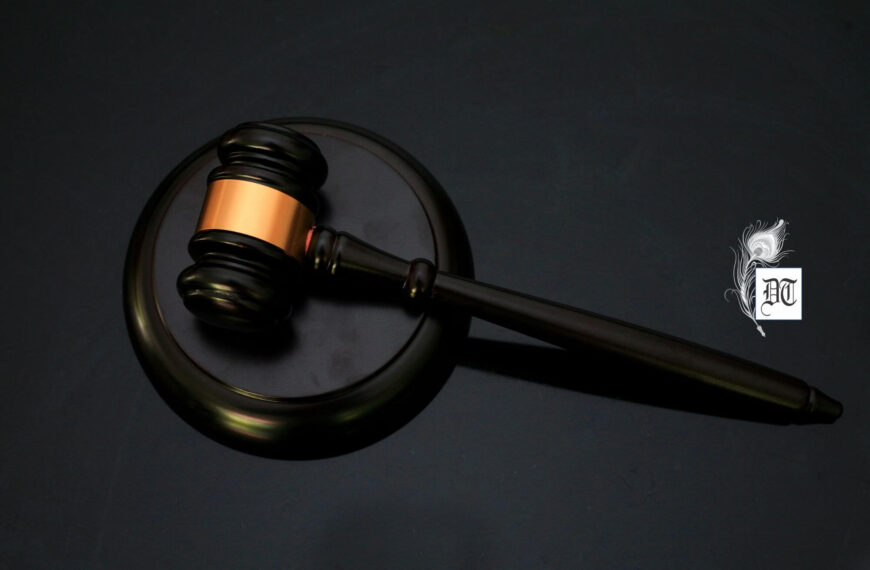Indian activist and lawyer, Henri Tiphagne, was awarded the prestigious Amnesty International Germany’s human rights award in Berlin on Monday (April 25). Shruti profiles him for Different Truths.
After receiving the coveted award, Henri Tiphagne said that in the field of human rights one never receives awards, rewards or recognition. He stated, “I am, therefore, receiving this award on behalf of a number of my mentors, largely from India, who worked for human rights and died without any awards. I also think this award is being handed over to an individual on behalf of a number of human rights defenders across India, whose names, faces and work are unknown to many globally.”
When he was a university student, he realised the need for social justice. His journey as an activist began in the 1970s. He took up the cause for the poorest of the poor in the society. Slowly, his work translated into human rights activism.
Henri’s mother had come to India from France as a single woman to serve leprosy patients. She adopted him and was his inspiration for the service that she did. It was only natural that he was drawn into the quest for social justice.
In an interview to an online media, Henri said, “The All India Catholic University Federation moulded me and played an important role in my transformation into a human rights defender. This is the basis of my work today.”
He has been vocal about the many challenges and obstacles that human rights defenders face in India. When he talked about criminalisation of human rights work, series of false cases being framed, physical and psychological tortures, I identified with it. Me and my husband, Lenin Raghuvanshi too had to bear the brunt of all this in Varanasi. Henri’s words sounded familiar, when he said, “If you are protesting, registering dissent, critical of government policies, then the first thing that is done is to file a slew of false cases against you. The falsity of the cases is evident from the type of cases registered – sedition, armed revolt against the state, waging war against the state.”
I also identified with his statement, when he spoke of the challenges, particularly women face. He spoke of “the attempts to discredit them and their work. Moreover, sexual overtones are brought into their human rights engagement in a variety of ways. And in addition to being discredited, their dignity is lost by the kind of allegations that are spread against them.”
He agonised that India doesn’t have a ministry of human rights nor does it have a parliamentary committee on human rights. He emphasied, “Both our government and parliament, and not only the judiciary, have a very important role in ensuring this.”
The 8th Human Rights Award by Amnesty International Germany was presented to Henri at an official ceremony on Monday (April 25) at the Maxim Gorki Theatre, in Berlin. It’s a recognition of his exceptional commitment to human rights. “For many decades now, Henri Tiphagne has been tirelessly and bravely standing up for human rights. His organisation’s invaluable work includes campaigning against discrimination and the use of torture in India,” Amnesty International had earlier said in a statement.
“Henri Tiphagne and his organisation People’s Watch, while fighting to ensure the rights of others, are themselves being harassed and hampered in their work by the authorities. And there are other civil society organisations in India that are in a similar position. The award is therefore meant to send a strong signal of support to the whole of the Indian human rights movement,” said Selmin Çalışkan, Director of Amnesty International Germany, in January this year.
He is the founder of the organisation People’s Watch, one of the most notable human rights organisations. People’s Watch has been researching and documenting human rights violations, as well as providing legal representation to those affected, for over 20 years. The organisation also actively supports human rights education: In 1997, Henri founded an institute offering training for teachers as well as mentoring around school human rights education programmes. So far, they have managed to reach out to around 500,000 children in 18 Indian states.
In recent years, many organisations have come under intense pressure by the Indian government, and People’s Watch is no exception. The organisation’s bank accounts have been frozen repeatedly since 2012. This meant that some employees had to be dismissed and many programmes needed to be abandoned. The Delhi government in power at the time used the Foreign Contribution Regulation Act to justify this kind of harassment. A complaint filed by People’s Watch against these government actions is still pending. The same legal framework is being instrumentalised for political ends by the current government under Prime Minister Narendra Modi. Those targeted by the authorities include non-governmental organisations as well as activists and local protest groups campaigning, for example, against forced evictions to make way for new coal mining projects.
Whenever activists and organisations are forced to limit the scope of their work due to this kind of harassment, human rights such as the rights to freedom of expression, assembly and association are under threat.
The Human Rights Award is presented by Amnesty Germany every two years in recognition of individuals or organisations campaigning for human rights under very difficult conditions. With the award, Amnesty International aims to honour and support the awardees’ exceptional human rights commitment and raise awareness of their work amongst the German public. The award is endowed with 10,000 Euros, provided by Amnesty Germany’s foundation Stiftung Menschenrechte, Förderstiftung Amnesty. The Human Rights Award will be presented for the eighth time in 2016. Former award recipients include: Monira Rahman from Bangladesh (2006), Women of Zimbabwe Arise from Zimbabwe (2008), Abel Barrera from Mexico (2011) and Alice Nkom from Cameroon (2014).
Pix from Net




 By
By
 By
By
 By
By